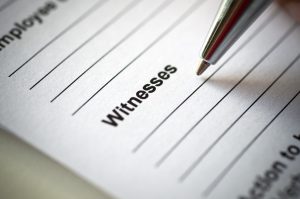 The Supreme Court of New Jersey’s decision in State v. Isaiah J. Knight offers a nuanced examination of the limits of reciprocal discovery in criminal cases, particularly focusing on the circumstances surrounding an affidavit recanting a witness’s previous identification of the defendant as the perpetrator of a crime. The facts of this case play a crucial role in understanding the Court’s rationale and its implications for criminal defense.
The Supreme Court of New Jersey’s decision in State v. Isaiah J. Knight offers a nuanced examination of the limits of reciprocal discovery in criminal cases, particularly focusing on the circumstances surrounding an affidavit recanting a witness’s previous identification of the defendant as the perpetrator of a crime. The facts of this case play a crucial role in understanding the Court’s rationale and its implications for criminal defense.
On June 1, 2021, Tyzier White was fatally shot outside the Neptune Lounge in Newark. Two witnesses, known by the nicknames “Zay” and “DJ Neptune,” identified Isaiah Knight as the shooter based on sworn statements and photo arrays. Subsequently, Isaiah Knight was arrested. However, in December 2021, Zay reported being coerced into recanting his original statement through a written affidavit while being held at gunpoint by individuals, including the defendant’s sister and cousin. This affidavit aimed to exonerate Knight by claiming Zay’s initial identification was made under duress from detectives.
The State sought to obtain this recanting affidavit from the defense, asserting that it constituted physical evidence of crimes (witness tampering and kidnapping) related to the initial murder charge. The defense objected, invoking constitutional protections to resist disclosing the affidavit. Nonetheless, the trial court and later the Appellate Division ruled in favor of the State, compelling the disclosure of the affidavit under the reciprocal discovery rules.
 Hudson County Criminal Lawyer Blog
Hudson County Criminal Lawyer Blog



 In a landmark decision, the New Jersey Supreme Court provided critical insights into the state’s witness tampering statute through the case of State v. William Hill. This case scrutinized the boundaries of lawful communication and witness intimidation, posing significant implications for criminal defense strategies.
In a landmark decision, the New Jersey Supreme Court provided critical insights into the state’s witness tampering statute through the case of State v. William Hill. This case scrutinized the boundaries of lawful communication and witness intimidation, posing significant implications for criminal defense strategies. The United States Supreme Court determined in Maryland v. Buie that a protective sweep made during an in-home arrest is only justified when (1) officers can, as a precaution, search areas immediately adjoining the area of arrest if they are areas from which an attack can be immediately launched, and (2) officers can look beyond those adjoining spaces if that search is based on articulable facts that would make reasonably prudent officer believe there is a threat.
The United States Supreme Court determined in Maryland v. Buie that a protective sweep made during an in-home arrest is only justified when (1) officers can, as a precaution, search areas immediately adjoining the area of arrest if they are areas from which an attack can be immediately launched, and (2) officers can look beyond those adjoining spaces if that search is based on articulable facts that would make reasonably prudent officer believe there is a threat. On December 9, 2021 the New Jersey Appellate Division published a decision which struck down a portion of New Jersey’s terroristic threats statute. In
On December 9, 2021 the New Jersey Appellate Division published a decision which struck down a portion of New Jersey’s terroristic threats statute. In 